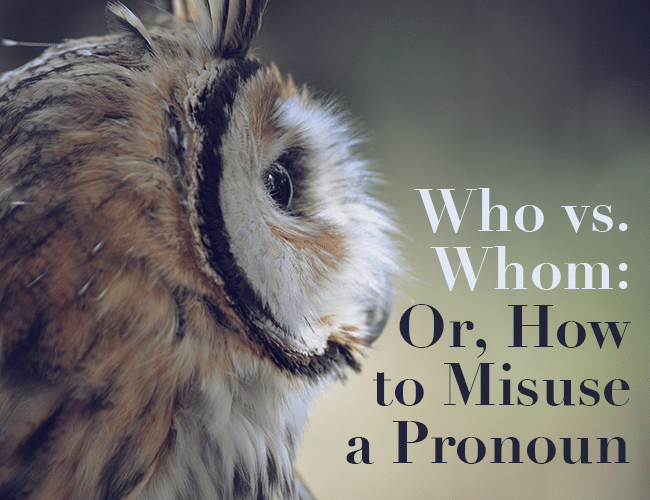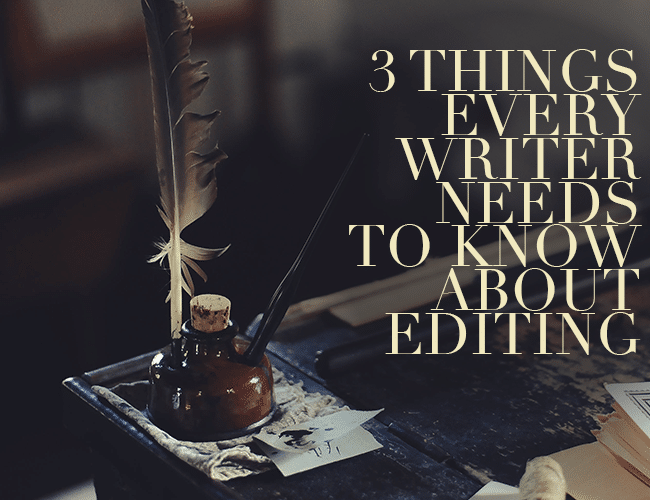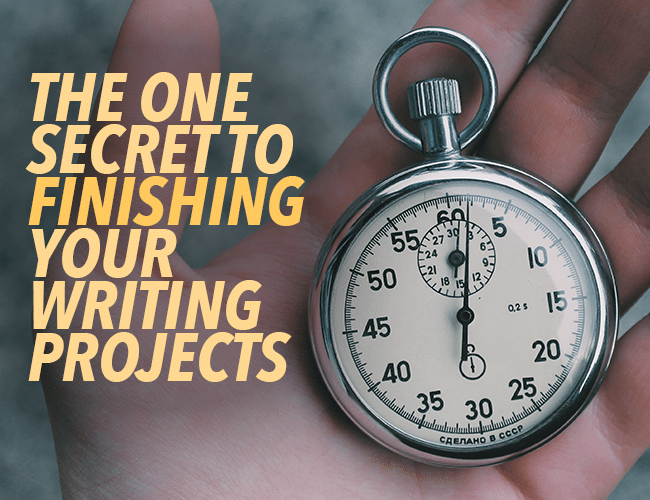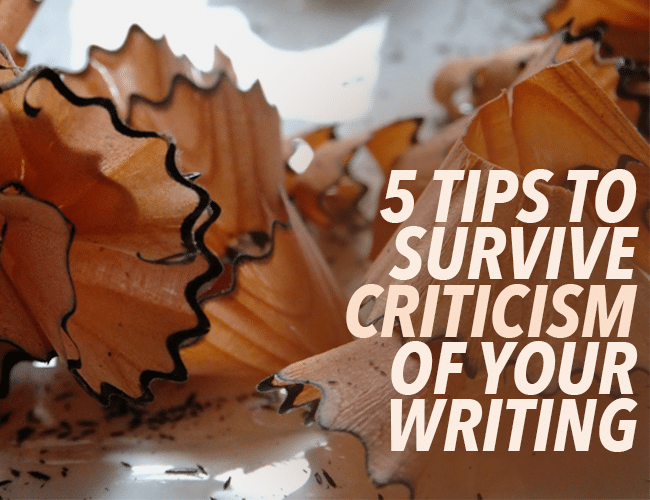
by Liz Bureman |
We avoided it as long as we could, but it was bound to come up sooner or later. Today, we’re covering the apparent mother of all grammatical quandaries: who vs. whom. What’s the difference between these two tricky pronouns?

by Jeff Elkins |
In the short time that I’ve been a writer, I’ve learned a valuable secret that we writers don’t discuss often: a writer is only as good as his or her editors.
Receiving feedback and accepting criticism and edits isn’t easy. No one likes being told what they are doing wrong, especially when the thing being criticized is something we’ve poured our heart and soul into it. When I first started writing, I hated getting edits. Now I pursue edits and editors with vigor.

by Liz Bureman |
This weekend in Denver is apparently supposed to be b-e-a-utiful. Weather reports are calling for temperatures in the 60s and 70s, and it’s going to be a great weekend to spend outside in the park. The only problem with this is that I’ll be in Philadelphia during this amazing weather spot. It will not be in the 60s and 70s in Philly. It will be in the 40s. That’s further than I’d like to be from those glorious spring temperatures.
Wait. Further? Or is it farther?

by Jeff Elkins |
As attention spans grow shorter, there is an increased demand for shorter stories.
I’ve noticed recently a lot of contests and submissions calling for stories under 3000 words. Writing a story this short is different than writing a novel or even a 10,000-word story. We need to get into the story, make a connection with the reader, and then wrap it up without wasting any time. It can feel strange for those of us used to writing larger pieces.
When you’re writing a very short story, editing is crucial.

by Ruthanne Reid |
A funny thing happens when you move.
You start out carefully. Each glass is conscientiously wrapped in six pages of newspaper. Each collectible is cushioned and boxed as if interred, and each box Sharpied with item, location, and name. Then a few days into this, something strange happens: you realize it doesn’t matter.
To put it another way, when you’re running out of time, you no longer have the luxury of faffing around. That’s when you really get down to business.

by Monica M. Clark |
A while back I attended a novel-writing workshop. Each week we read thirty pages from two students and spoke about them in depth during class, offering helpful feedback and criticism of their writing. After the second or third week, it became customary to ask whoever had been up for a critique “are you OK?” after class. Sometimes I saw tears. I myself felt overwhelmed by the amount of work I still had to do and my classmates’ brutal honesty.
We all know workshops and editing are crucial to the writing process. Writing criticism is essential. But man, that feedback can be hard to hear. Here five survival tips.








